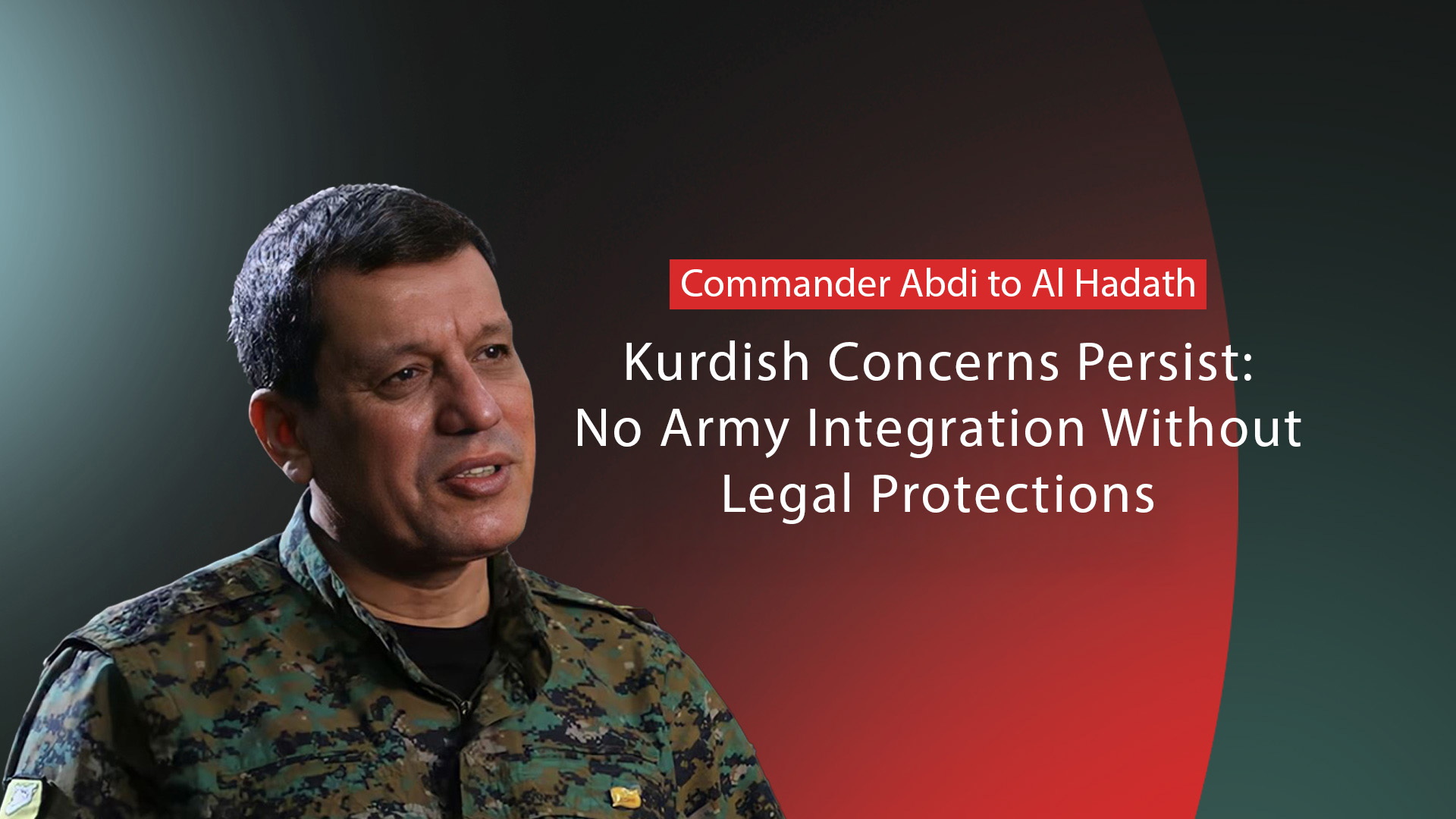Mazloum Abdi Sees Saudi Role as ‘Positive’ in Syria Talks, Rejects Turkish Mediation
In an interview with Al Arabiya, SDF Commander Mazloum Abdi confirmed daily talks with Damascus on a unified Syria. He identified Saudi Arabia as a potential mediator, while a complex backdrop of US pressure to disarm and the SDF’s demand for constitutional rights stalls progress.

ERBIL (Kurdistan24) – Syrian Democratic Forces (SDF) Commander Mazloum Abdi has confirmed that communication channels with the Syrian government are open daily and identified Saudi Arabia as a potential “positive” mediator in negotiations, while outlining a vision for a unified Syria with a single, centralized army.
In a special interview with the “Al Arabiya” and “Al Hadath” channels, the SDF commander described his recent meeting with Syrian President Ahmed al-Sharaa as “positive” but acknowledged that deep-seated Kurdish concerns over military integration without constitutional guarantees remain a central challenge. His comments come amid a complex diplomatic backdrop where the SDF has firmly rejected U.S. pressure to disarm and Damascus claims no real progress has been made.
Speaking to the media outlets, Abdi explicitly denied any mediating role for Türkiye in the discussions but highlighted Riyadh's potential influence. According to Abdi, Saudi Arabia “can play a positive role if it enters as a mediator,” a possibility he linked to what he described as the Kingdom's “major role in lifting sanctions on Syria.”
A core theme of the interview was the framework for Syria’s future. Abdi stressed the SDF's agreement with the government on the “unity of Syria with one army and one flag,” in his words. He further elaborated that some sovereign institutions must remain centralized in the capital, Damascus. However, this vision of military centralization clashes with the SDF’s long-standing position on disarmament.
An SDF representative, Sihanouk Dibo, previously stated that a U.S. demand to hand over weapons is “a non-negotiable issue,” clarifying that the SDF’s goal is to “become part of a new Syrian army” through a political solution that “guarantees the constitutional rights of its components.” This stance has been echoed by Sinam Mohamad of the Syrian Democratic Council (SDC), who told Kurdistan24 that the SDF is a “major force” that cannot be integrated “in a day or a night” without a comprehensive political transition, including a new constitution and the disarmament of all other factions.
Former adviser to U.S. President Donald Trump, Walid Phares, described the SDF as "probably the most powerful force on the ground in Syria outside the regime," calling any expectation of their disarmament without substantial political guarantees "unrealistic."
While Abdi projected a positive tone about his dialogue with President al-Sharaa, the view from Damascus appears starkly different. Qutaiba Idlbi, the head of U.S. affairs at the Syrian Ministry of Foreign Affairs, recently stated that “no tangible progress has been made” in implementing the March 10 agreement between the government and the SDF, accusing the group of stalling.
The discussions are taking place amid significant international engagement. French President Emmanuel Macron has emphasized the need for sincere negotiations, and Paris is set to host talks between Syria, France, and the United States to facilitate the SDF's integration. However, the path forward remains contested.
In his interview with "Al Arabiya" and "Al Hadath," Commander Abdi affirmed that while the Kurdish community agrees with the SDF's proposals, there is persistent “concern about integration into the Syrian army without constitutional guarantees,” according to his statements.
This reflects the broader call for a federal model, which experts like Walid Phares have argued is necessary for a multiethnic country like Syria, citing the Kurdistan Region of Iraq as a potential example.
During the interview, Abdi also denied receiving any offer from the Syrian government to assume a new position for himself.
